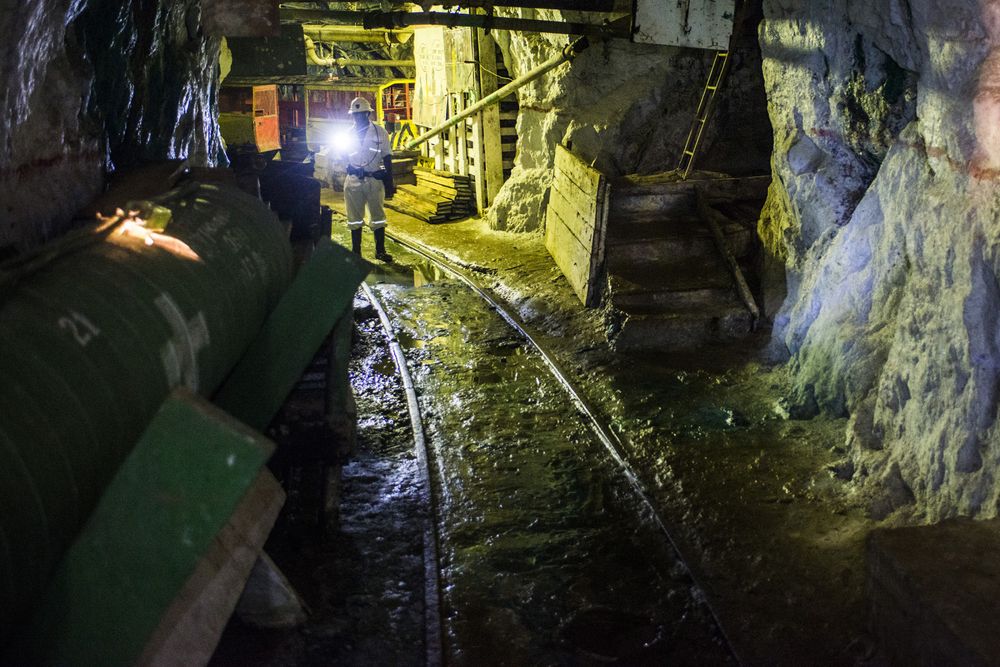- FG Plan to Partner Private Sector on Solid Minerals
The federal government has promised to deepen its diversification process through partnership with private sector to further open up the solid minerals sector. The government said it has also recognised the need to put in place sound policies and programmes to promote the metal processing industry in order to maximise the gains in the sector.
Speaking at a two-day conference organised by Kian Smith Gold Refinery on Gold West Africa in Lagos, the Director, Investment Promotion Department, Federal Ministry of Industry, Trade and Investment, Nigeria, Olukemi Abimbola Arodudu, said the country was serious about attracting sustainable investor in the area of gold mining and processing in Nigeria, hence the need to create an enabling environment for investors. The theme of the conference was: The future of African Gold – developing the West African Gold Economy.”
Arodudu who spoke on behalf of the Permanent Secretary in the ministry, disclosed that federal government had designed a zero per cent import duty on machinery in the sector as well as allowing tax exception for miners. She, however, admitted that bureaucracy has remained a clog in the work of government but assured stakeholders that everything would soon be firmed up to enhance a seamless operation.
“As we all know, a lot of things must be put into process in formulating government policies and this also slow down processes. Even though the process is slow, with understanding and cooperation of all stakeholders, we will soon get there because government is committed to further open up the solid mineral industry.
“Much as I understand the fact that gold mining and processes are not where they should be in Nigeria, I know there is no policy gap that cannot be bridged. Therefore, very soon, stakeholders in the Gold industry will be proud of their collaboration with government.
“One of the critical areas of focus of the Economic Recovery and Growth plan (ERGP) selected to achieve the diversification of the Nigerian economy is the solid minerals sector because of the huge deposit of the mineral resources in the country which include the Gold deposits. We will therefore support every policy and strategy aimed at promoting industrial processing of solid minerals in the country,” she said.
The director further added that the importance of promoting the gold sub sector in Nigeria and indeed West Africa cannot be over emphasised.
“It is no secret that currently, activities in the sub sector is centred on countless artisanal miners and that the gold mined by these miners are mostly exported through middle men thereby denying the country of the economic benefits in the gold value chain.”
Speaking on the challenges facing the industry, Vice Chairman, Kian Smith Gold Refinery, Nigeria, Nere Teriba, expressed concern over lack of data to guide the government on the potential of The Gold industry in Nigeria.
According to her; “The Gold industry in Nigeria has potentials but unfortunately there is no data to rely on due to abandonment of the industry by the government. As a player in the industry, I can confidently say that the demand for Gold in Nigeria is big but no data to back it up. To effectively explore the industry there is need for policy review as well as designing an effective monetary policy for the sector. ”

 Forex3 weeks ago
Forex3 weeks ago
 Naira3 weeks ago
Naira3 weeks ago
 Billionaire Watch3 weeks ago
Billionaire Watch3 weeks ago



 Naira3 weeks ago
Naira3 weeks ago






 Naira2 weeks ago
Naira2 weeks ago




 Naira2 weeks ago
Naira2 weeks ago




 Naira4 weeks ago
Naira4 weeks ago






 Naira1 week ago
Naira1 week ago
























